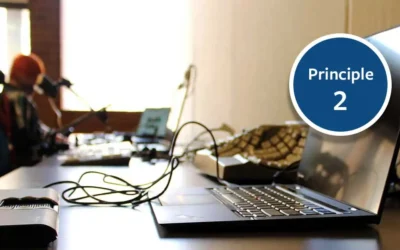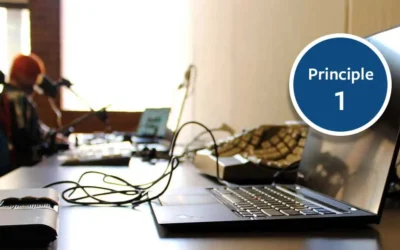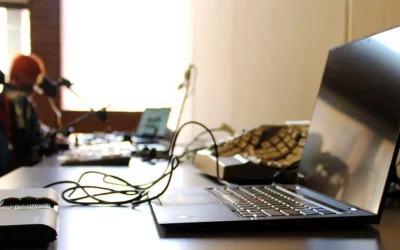Museum Labor Resources for Professional Advocacy

Rachael Cristine Woody
In a recent post from a new museum professional on the American Alliance of Museums’ (AAM) email digest, she shared that she obtained her first professional job at a museum with a $30,000 annual salary. The professional acknowledged that it wasn’t enough to cover her financial obligations and asked the list members how they coped with below-living-wage salaries.
Some recommended getting a second job—an unfortunate reality for many new professionals—while others urged the new professional to try and negotiate using existing data on museum salaries.
Across libraries, archives, and museums (LAMs) professional staff have increasingly clamored for more ethical labor practices. This is illustrated by the Digital Library Federation (DLF) Working Group’s living wiki documenting all LAM activities and resources pertaining to labor. It is an incredible list with both professional organizations and grassroots efforts working on unethical labor practices that have been chronic within the LAM professions for years, even decades.
If you’re a museum professional, new or not, there are a few opportunities for professional advocacy and I encourage you to explore all of them:
Check the Museum for Ethical Hiring Practices
Ask your current or prospective human resources department if they adhere to AAM’s Ethical Hiring Practices. If they don’t adhere to them or if they aren’t aware of them then this is a warning sign for how employees are treated.
Learn How to Negotiate Salary
While it’s true that museums can have tight resources, usually all job posts will have a salary range. If you’re interviewing, ask for the salary range and refer to recent salary surveys (formal and informal) to see what the average museum salaries are for location, institution size, and institution type. Ask for your worth based on your experience, skills, knowledge, and location. Or, if you’re going through a performance evaluation, use this opportunity to discuss adjusting your compensation. Refer to AAM’s salary negotiation resources for facts and tips to use. Remember: negotiation is a normal aspect of job hunting and progression and if you don’t ask, you don’t get.
Build a Professional Network
For the health of your career it is always a good idea to nurture your professional network. Having a robust network can aid in the following ways:
- You can more easily identify colleagues (and they, you) with overlapping interests. This can lead to collaborative projects, conference presentations, and professional papers.
- You have professional peers at museums outside your own who you can go to if there’s an issue and you need the perspective of a peer outside the museum.
- You have a network of colleagues you can share salary information with to help ensure everyone is being paid appropriately for their work and cut down on any inequitable wage gaps.
- When it’s time to job hunt you have colleagues that can help connect you to opportunities, be references (especially if you can’t use your boss), and proof your resume.
If you’re not sure how to find colleagues to connect with, try the following:
- Become a member of the local (geographical or regional) professional organization and attend events hosted by the organization.
- Check in with larger institutions to see if there are informal colleague gatherings as many areas host informal lunches and happy hours.
- Research young professionals’ groups, meet ups, and even virtual groups (via Facebook, Linkedin, or Reddit) to locate people with similar professional interests.
Advocacy Doesn’t Stop with You
Finally, make sure you’re an advocate for others. Advocating for the value of professional work is inherently inclusive and will more easily influence decision-makers to look at museum salaries and compensation strategies holistically, and adjust as needed.

Rachael Cristine Woody
Consultant, author, and blogger Rachael Cristine Woody advises on museum strategies, collections management, grant writing and the future of museums for a wide variety of clients. Learn about Lucidea’s Argus solution for museum collections management and download your free copy of Rachael’s book from Lucidea Press, How to Select, Buy, and Use a Museum CMS
Similar Posts
Museum Collections Online with Accessibility Principle 2: Operable
Compliance with WCAG Version 2.1 Principle 2: Operable
Museum Collections Online with Accessibility Principle 1: Perceivable
Compliance with WCAG Version 2.1 Principle 1: Perceivable, affecting information published from museum CMS to an online portal; expert guidance
Accessibility Standards for Museum Collections Online
A museum’s compliance with the ADA Title II 2024 update has benefits for its online content and for the museum’s community of users.
Museum TrendsWatch 2024: Digital Twins and Doom Loops & Combatting the Loneliness Crisis
Digital Twins is the construction of a digital surrogate for a person, place, or thing—one of several new concepts and trends in the museum sector.




Leave a Comment
Comments are reviewed and must adhere to our comments policy.
0 Comments